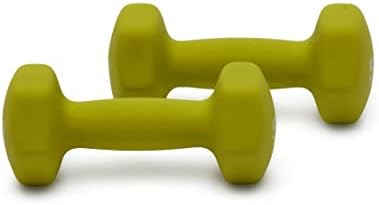Introduction to Athletic Training Programs
Athletic training programs are specialized regimens designed to enhance sports performance, promote fitness, and importantly, reduce the risk of injuries. These programs vary broadly in their approach, targeting everything from general physical conditioning to sport-specific skills. Rooted in scientific principles, they focus on the holistic development of an athlete, incorporating a variety of exercises, recovery techniques, and nutritional guidance to achieve optimal results.
The Importance of Athletic Training
The significance of athletic training programs cannot be overstated, as they play a crucial role in an athlete's performance and health. Firstly, they are tailored to improve strength, speed, agility, and endurance—all fundamental attributes that contribute to an athlete's success in their chosen sport. Moreover, these programs are essential in minimizing the risk of injuries. Through carefully designed exercises that enhance flexibility, balance, and proper movement patterns, athletes can better withstand the physical demands of their sports, reducing their likelihood of suffering injuries that could sideline them from training and competition.
Preventing Injuries
Injury prevention is a cornerstone of athletic training programs. By focusing on areas such as proprioception training, core stability, and joint mobility, athletes develop a stronger, more resilient body. Additionally, sports-specific drills that simulate game situations help athletes improve their technique and reduce the likelihood of injury during play. Importantly, these programs also educate athletes on recognizing the signs of overtraining and the importance of recovery, further mitigating the risk of injury.
Boosting Performance
Enhancing an athlete's performance is the primary goal of most athletic training programs. Through targeted workouts, athletes can make significant gains in their physical abilities. This not only includes the improvement of muscular strength and cardiorespiratory endurance but also encompasses the refinement of sport-specific skills. High-intensity interval training (HIIT), plyometrics, and resistance training are just a few examples of the types of exercises that are often included to help athletes reach their performance goals.
Components of an Effective Athletic Training Program
An effective athletic training program is comprehensive and multifaceted, encompassing more than just physical training. To truly benefit athletes, these programs must include several key components:
- Assessment: Before starting, athletes often undergo assessments to establish their physical condition, strengths, weaknesses, and injury history. These insights allow trainers to tailor programs to meet individual needs.
- Physical Conditioning: A mix of aerobic, anaerobic, and strength training exercises tailored to improve the athlete's overall fitness and sport-specific performance.
- Nutritional Guidance: Proper nutrition is crucial for athletic performance and recovery. Programs should provide athletes with nutritional plans that support their training needs and goals.
- Mental Conditioning: Mental toughness and resilience are as important as physical strength. Programs may include psychological strategies to improve focus, confidence, and coping mechanisms for stress and pressure.
- Recovery Strategies: Adequate recovery is vital for preventing injuries and improving performance. Techniques such as stretching, massage, and cold-water immersion might be incorporated to ensure athletes recover properly between training sessions.
- Injury Management and Rehabilitation: In the event of injury, having access to proper rehabilitation programs and healthcare professionals is essential to safely return to sport.
Conclusion
Athletic training programs are indispensable in the world of sports, offering a structured approach to enhancing performance and reducing the risk of injury. By focusing on physical conditioning, sport-specific skill development, nutrition, recovery, and mental conditioning, these programs prepare athletes for the rigors of competition while promoting long-term health and career longevity. Whether amateur or professional, athletes can profoundly benefit from the comprehensive and personalized support that athletic training programs provide.





